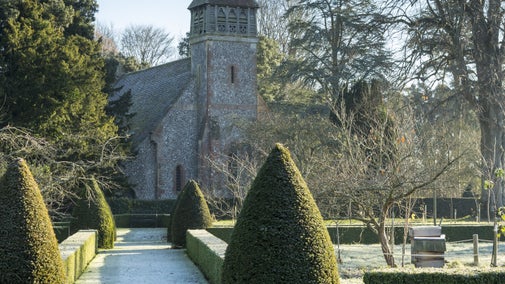
Discover more at Mottistone Gardens and Estate
Find out when Mottistone Gardens and Estate is open, how to get here, the things to see and do and more.
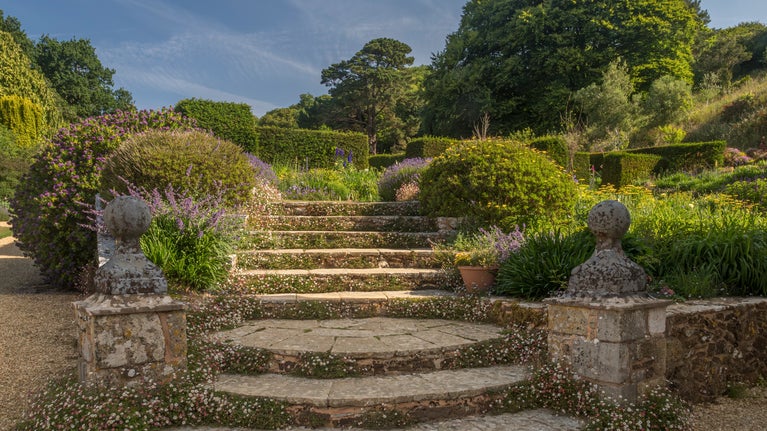
The tranquil garden at Mottistone is well known for its colourful borders but there's far more to explore. Banks covered with wildflowers in the spring shelter the garden and unusual drought-resistant plants thrive without watering. With a multitude of different spaces to discover, and sea views from the higher areas, this garden is not to be missed.
As spring unfolds at Mottistone Gardens, the landscape comes to life with vibrant colour and fresh new growth. The garden is full of seasonal beauty - a peaceful place to pause and enjoy nature’s changing rhythm.
A vibrant landscape
This season, enjoy colourful borders, open lawns, and shady glades perfect for relaxing. Whether it’s unwinding with sea views, enjoying a picnic, or exploring the meadow and orchard, there’s plenty of space to soak up the spring air.
The gardens, shaped by generations of gardeners, are a living work of art, influenced by past garden makers, such as Lady Nicholson’s 1960s planting schemes and the 1980s creation of the Monicote border.
Seely and Paget’s shack: A unique garden room
A standout feature of Mottistone is Seely and Paget’s Shack – thought to be an early example of a modern garden room, or even a ‘tiny home’. Originally located near the Golf Club House at Freshwater Bay before being moved to Mottistone for personal reasons, this innovative space offers a fascinating glimpse into early 20th-century ideas about creativity, outdoor living and the blending of work and nature.
A garden with global significance
Mottistone is located within a UNESCO Biosphere Reserve, and it plays an important role in local conservation. The garden’s blend of Sicilian and Isle of Wight native plants, alongside the UK’s only National Trust olive grove, gives it a unique character. Sustainable gardening techniques, such as scything instead of strimming, help support wildlife and promote biodiversity.
New growth in the kitchen and tea gardens
The kitchen garden is entering an exciting new phase, with plans to introduce coastal varieties such as spaghetti squash, sea kale and samphire. Meanwhile, the tea garden – once a tennis court – will be transformed with acid-loving plants like camellias and rhododendrons, alongside traditional favourites including stocks (Matthiola incana 'Alba'), tobacco plants (Nicotiana sylvestris), pinks (Dianthus) and pineapples (Ananas comosus). Many of these cultivars, popular in the 1950s, reflect the historic plantings captured in the Long Room’s newly displayed wall hangings, offering visitors a living connection between the garden and the house.
Explore beyond the gardens
Take a stroll to the coastal downs or the sea, where panoramic views stretch across the UNESCO Biosphere Reserve. With the gardens bursting into colour, spring is the perfect time to visit and experience Mottistone’s beauty in full bloom.
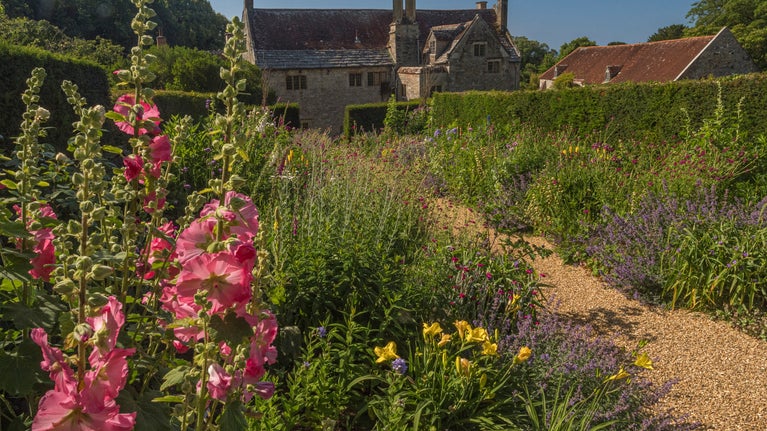

Find out when Mottistone Gardens and Estate is open, how to get here, the things to see and do and more.
The Shack was a neat, compact retreat for 1930s architects Seely & Paget where they designed projects like Eltham Palace. It is still furnished as it would have been in their time.

With wide-open spaces and far-reaching views, there is plenty to do on the estate from walking and cycling to discovering remains of a Neolithic long barrow.

There has been a dwelling on the site of Mottistone for over a thousand years. Discover how it evolved over centuries of changes and how it came through disaster.

From 18th-century water gardens and Arts and Crafts landscapes to intimate woodland gardens, there are so many places to discover.
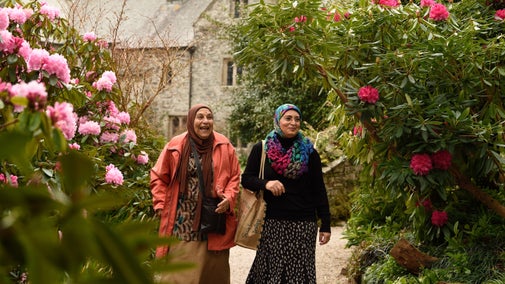
Discover our gardeners’ top tips so you can make the most of your garden, plot or window box.
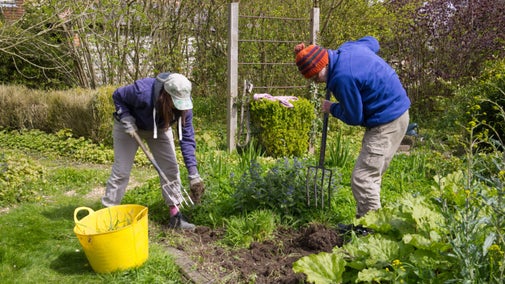
Hampshire has delightful gardens and parklands to explore in winter. Discover peaceful places with sculptural planting, frost-covered topiary, and beautiful vistas to enjoy with family and friends.
